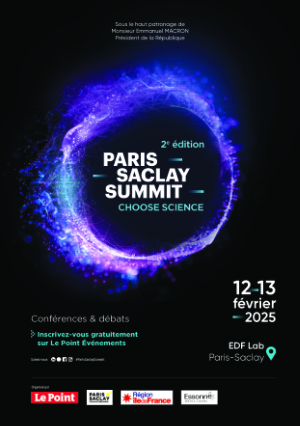Effect of CBD gestational exposure on female offspring
| ABG-127418 | Master internship | 6 months | gratification |
| 2024-12-05 |
- Biology
Employer organisation
Website :
Créé en 2009 et labellisé par l’Inserm en 2012, l'Irset est une unité mixte de recherche de l’Inserm, de l’Université de Rennes et de l'EHESP - Ecole des hautes études en santé publique (UMR_S Inserm 1085), en partenariat avec l'Université d'Angers, l’Université des Antilles, le CNRS, et les CHU de Rennes, Angers et Pointe-à-Pitre.
MISSIONS
Étudier les processus biologiques et les facteurs environnementaux - physiques, chimiques, biologiques, professionnels et socioculturels - qui influencent la santé humaine,
Répondre aux demandes des autorités gouvernementales, nationales et régionales, et des agences de santé en charge de la santé publique, de la santé environnementale, de la santé au travail et de la sécurité des médicaments, en leur fournissant des données scientifiques et en contribuant à des travaux d'expertise,
Contribuer par la recherche à l'élaboration des Plans nationaux, notamment dans les domaines de la santé publique, de la santé au travail, de la santé environnementale et de la santé au travail,
Répondre aux sollicitations des citoyens, des associations non-gouvernementales, des organismes intermédiaires et des médias.
Description
Context:
Cannabidiol (CBD) and D9-tetrahydrocannabinol (THC) are the main phytocannabinoids found in cannabis. While THC is classified as a narcotic for its psychotropic effect, possession, sale and CBD consumption is authorized in France. Cannabis is the most consumed drug by pregnant women and its legalization in some countries is correlated with the increase of its consumption. Pregnant women favor products containing only CBD and use it to alleviate symptoms such as depression, anxiety, vomiting or nausea (Bathia D. et al, 2024). CBD acts on specific cannabinoid receptors, called CB1 and CB2. They are also the receptors for endogenous molecules, the endocannabinoids (eCA). Under physiological conditions, activation of the endocannabinoid system (ECS) via these G protein-coupled receptors induces a number of intracellular signaling pathways that play fundamental physiological roles in the brain and peripheral tissues, including the regulation of reproductive function. In women, cannabis consumption affects the secretion of estradiol, progesterone or prolactin. Interestingly, a Canadian study demonstrated an increase in the detection of phyto-cannabinoids in follicular fluid in women following the legalization of cannabis (Fuchs Weizman N. et al., 2021). While cannabis use by pregnant women is associated with lower birth weight or lower gestational age, no epidemiological data correlate exposure to cannabis or CBD and alterations in reproductive function after birth. In animals, some studies point out the negative effect of gestational exposure of Δ9-THC or CBD in male and female offspring reproduction but all data remain incomplete and inconclusive.
Objectives/aims: In this context, considering cannabis being the most consumed drug by pregnant women and CBD use increase in pregnant women to alleviate symptoms linked to pregnancy, the aim of this project is to carry out research to understand the potential hazard of gestational exposure to CBD on female offspring.
Methods : we propose to expose Swiss mice from embryonic day (E) 6.5 to day E15.5 to CBD at 5 and 20 mg/kg/day. These 10 days of treatment correspond to a critical period of primordial germ cells differentiation in mice. The chosen doses are used for therapeutic purposes. The evaluation of biological parameters after treatment will be assessed. The ovaries of female offspring were collected at 6 days, the day of vaginal opening and 8 months. The number of primordial follicles will be assessed at 6 days and the ovarian reserve on the day of vaginal opening and at 8 months as well as the level of Estradiol, AMH, in the serum. We will also evaluate the effect of CBD at the transcriptional level by qPCR after extraction of ovarian mRNAs at all ages of interest.
Profile
Requested Competences/qualities:
Toxicology and/or reproductive biology knowledges
Lab work
Work in team
Good communication and writing skills
Starting date
Vous avez déjà un compte ?
Nouvel utilisateur ?
Get ABG’s monthly newsletters including news, job offers, grants & fellowships and a selection of relevant events…
Discover our members
 PhDOOC
PhDOOC  Groupe AFNOR - Association française de normalisation
Groupe AFNOR - Association française de normalisation  Ifremer
Ifremer  Tecknowmetrix
Tecknowmetrix  ANRT
ANRT  Laboratoire National de Métrologie et d'Essais - LNE
Laboratoire National de Métrologie et d'Essais - LNE  Institut de Radioprotection et de Sureté Nucléaire - IRSN - Siège
Institut de Radioprotection et de Sureté Nucléaire - IRSN - Siège  CASDEN
CASDEN  ONERA - The French Aerospace Lab
ONERA - The French Aerospace Lab  MabDesign
MabDesign  TotalEnergies
TotalEnergies  ADEME
ADEME  CESI
CESI  Généthon
Généthon  SUEZ
SUEZ  Institut Sup'biotech de Paris
Institut Sup'biotech de Paris  MabDesign
MabDesign  Nokia Bell Labs France
Nokia Bell Labs France  Aérocentre, Pôle d'excellence régional
Aérocentre, Pôle d'excellence régional




